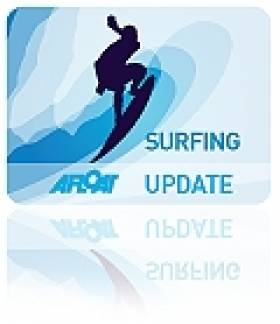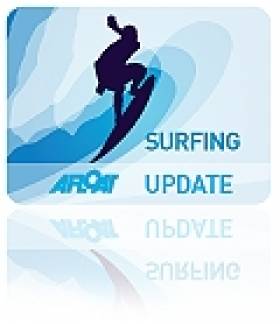Displaying items by tag: Prowlers
Prowlers Surf Well Worth The Wait For Big Wave Riders
#Surfing - The Irish Times was on hand earlier this week to capture six daring surfers' excursion to the secret swell spot known as Prowlers.
Big Wave Award contender Kurt Rist was among the group who had waited three years for the return of the rare surf phenomenon off Mullaghmore Head in Co Sligo, which is only accessible to the hardiest waveriders by Jet Ski tow-in.
Discovered in 2006, Prowlers was only captured on camera for the first time in late 2010 - and videoed again this past Monday 3 March as Rist and company took up the challenge. The Irish Times has more HERE.
Speaking of rare waves, Red Bull recently highlighted some never-before-seen snaps by student Christian McLeod of Rist and others surfing nearby west coast slab The Unfound.
And MagicSeaweed has also celebrated the 'grit and guts' of the Mullaghmore regulars, particularly this stunning display by Newquay surfer Tom Butler (beware the NSFW audio):
Tom's Bomb by Peter Conroy from MSW on Vimeo.
Further afield, Ireland can hail the exploits of Lahinch resident and 'adopted Clareman' Tom Lowe, who last month became the first European to surf Mexico's notorious Killers, according to the Irish Examiner. Check out the video evidence:
Videos Get Up Close With Prowlers
Two new videos posted online offer a fasincating insight into the impressive and mysterious west coast big wave spot known as Prowlers.
The first includes footage and images from the infamous surf session from last November that put the wave on the map:
The second video, in stunning high definition, shows Al Mennie and Andrew Cotton paddling in to take on the incredible surf:
The precise location of Prowlers is still a closely guarded secret among the big wave surfing community.































































